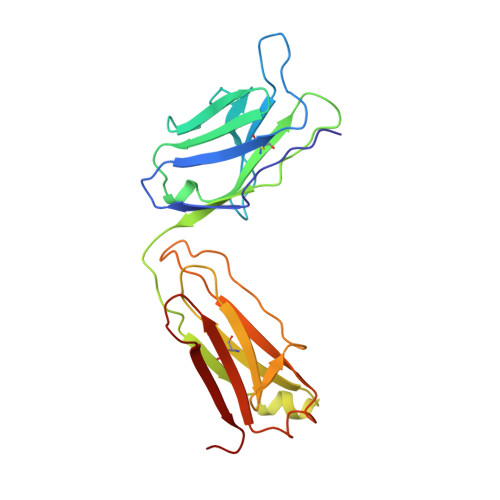VL:VH domain rotations in engineered antibodies: crystal structures of the Fab fragments from two murine antitumor antibodies and their engineered human constructs.
Banfield, M.J., King, D.J., Mountain, A., Brady, R.L.(1997) Proteins 29: 161-171
- PubMed: 9329081
- DOI: https://doi.org/10.1002/(sici)1097-0134(199710)29:2<161::aid-prot4>3.0.co;2-g
- Primary Citation of Related Structures:
1AD0, 1AD9, 1AE6, 1CLO - PubMed Abstract:
The crystal structures of two pairs of Fab fragments have been determined. The pairs comprise both a murine and an engineered human form, each derived from the antitumor antibodies A5B7 and CTM01. Although antigen specificity is maintained within the pairs, antigen affinity varies. A comparison of the hypervariable loops for each pair of antibodies shows their structure has been well maintained in grafting, supporting the canonical loop model. Detailed structural analysis of the binding sites and domain arrangements for these antibodies suggests the differences in antigen affinity observed are likely to be due to inherent flexibility of the hypervariable loops and movements at the VL:VH domain interface. The four structures provide the first opportunity to study in detail the effects of protein engineering on specific antibodies.
Organizational Affiliation:
Molecular Recognition Centre, University of Bristol School of Medical Sciences, United Kingdom.















